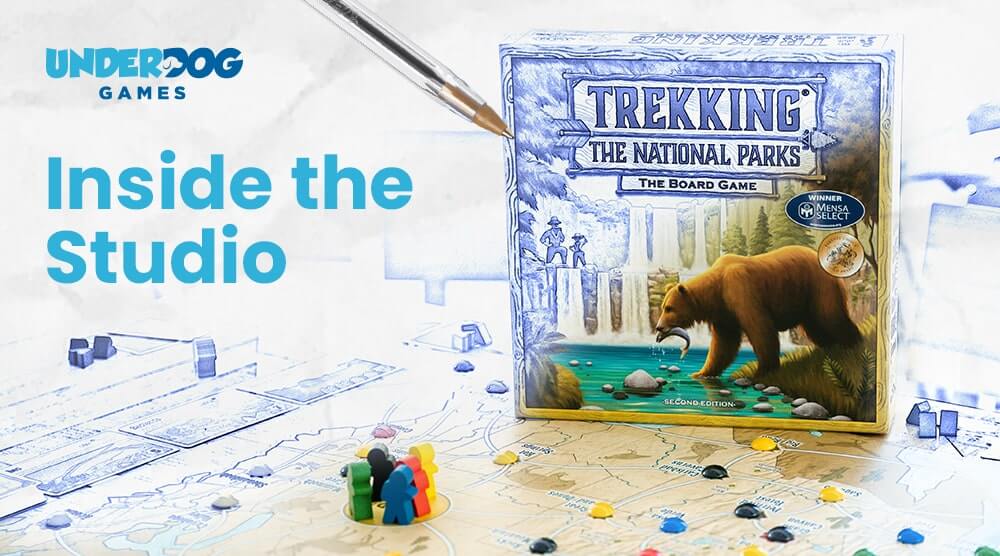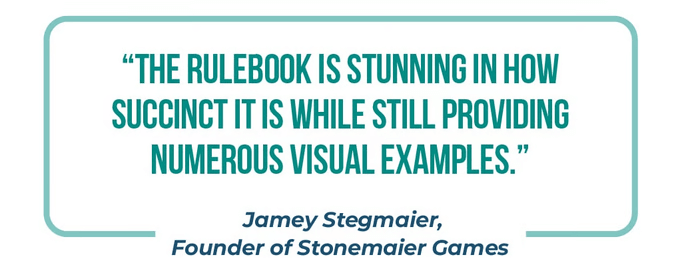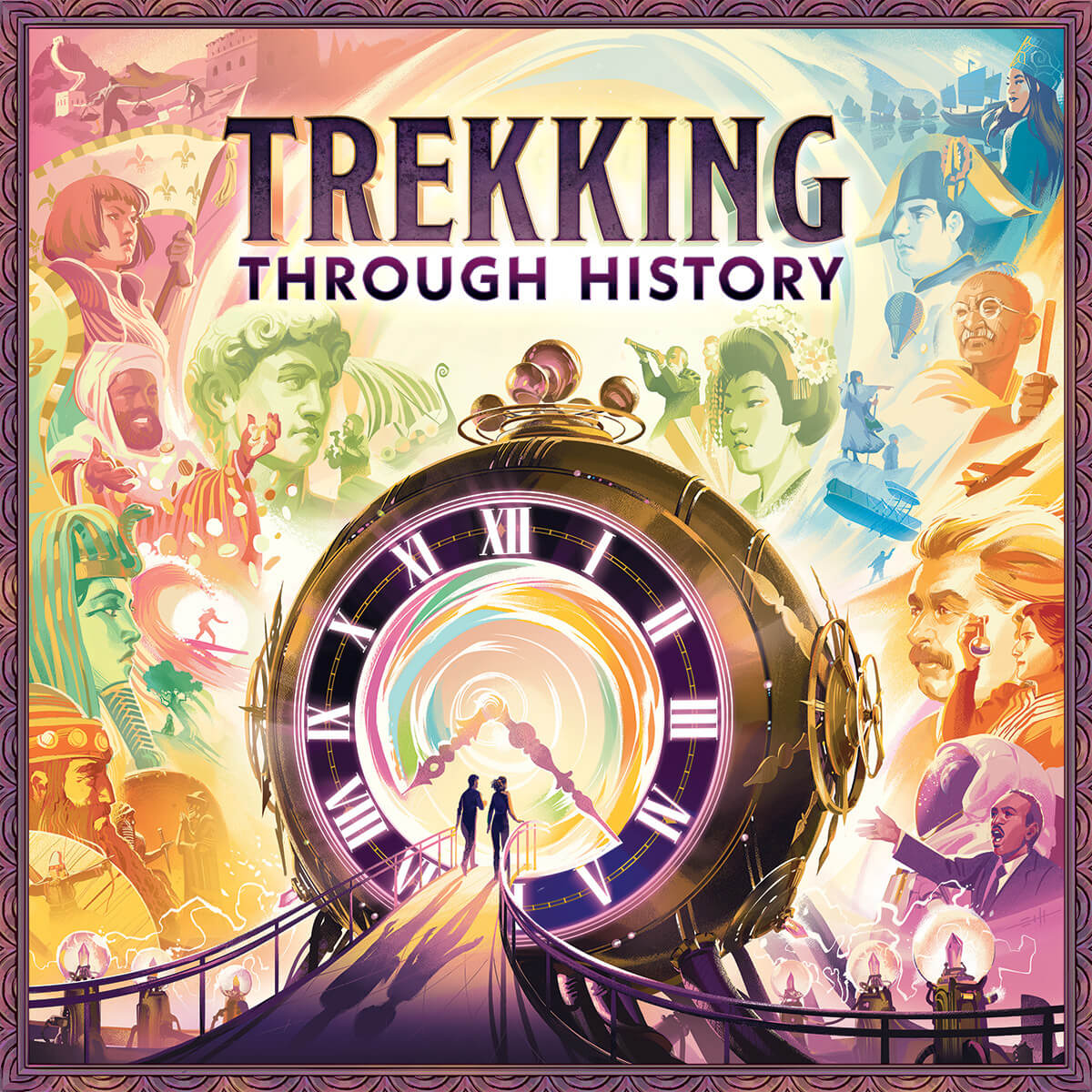Welcome to this week's behind-the-scenes post.
For about 5 years, we've had explicit objectives we want our games to accomplish. Today I'm writing about the one that has felt the hardest. Here's how we define it:
We want to make games hobbyists AND their non-gamer friends and family enjoy. Most family/friend groups have varying tolerances for strategy. Games that don't work for everyone don’t get played, so we try to make games that work for multiple tastes. We try to avoid making them "too much" for those intimidated by strategy games, nor "too little" for those who love them.This turns out to be a terrifically difficult problem and I have reams to say about it. But today I'll focus on just one layer of difficulty I've noticed recently.
One of many ways we've tried to solve the problem is to get better at writing rulebooks. I feel confident we have. We've discovered ways to communicate game mechanics in simpler, clearer ways, with fewer words, so less experienced players don't feel overloaded before they take their first turn. As evidence, here are a couple of unsolicited comments about our latest (for Trekking the World 2nd Edition):
However, I've noticed some strategy-lovers seem to use the complexity of the rules as a kind of proxy indicator of whether they'll like a game. Such folks may look at a rulebook as simple as one of our recent ones, and decide to look no further, thinking our games couldn't be enjoyable to them.
Even if they play the game, they may not look for strategy, won't find it, and come away feeling their suspicions have been confirmed, via a kind of confirmation bias.
I've noticed this especially with our game Trekking through History:
I'm pretty skilled at that game: at one point, I won more than 40 times in a row. I read comments about our games online, and I often see comments to the effect that there's not much to it, either it's all luck or the decisions are obvious. I know, from having gotten as skilled as I have, it's not true.
But it seems the game doesn't telegraph this fact to many people.
More generally, it may be true that, the more clearly one is able to teach the basic mechanics of a game, the more that clarity may hide or veil the strategy within.
And so now this is another dimension of the problem to be aware of and solve for. I've only just begun to think about how. The only idea I've had so far is to include a strategy pamphlet in each of our games, separate from the rulebook (so the rulebook doesn't seem too thick or intimidating to less-experienced players).
If you have suggestions, I'd love to know them. Alternatively, if you think I'm conceiving of the problem poorly, I'd love to know your thoughts in that regard.
Best,
Nick Bentley
President, Underdog Game Studio






